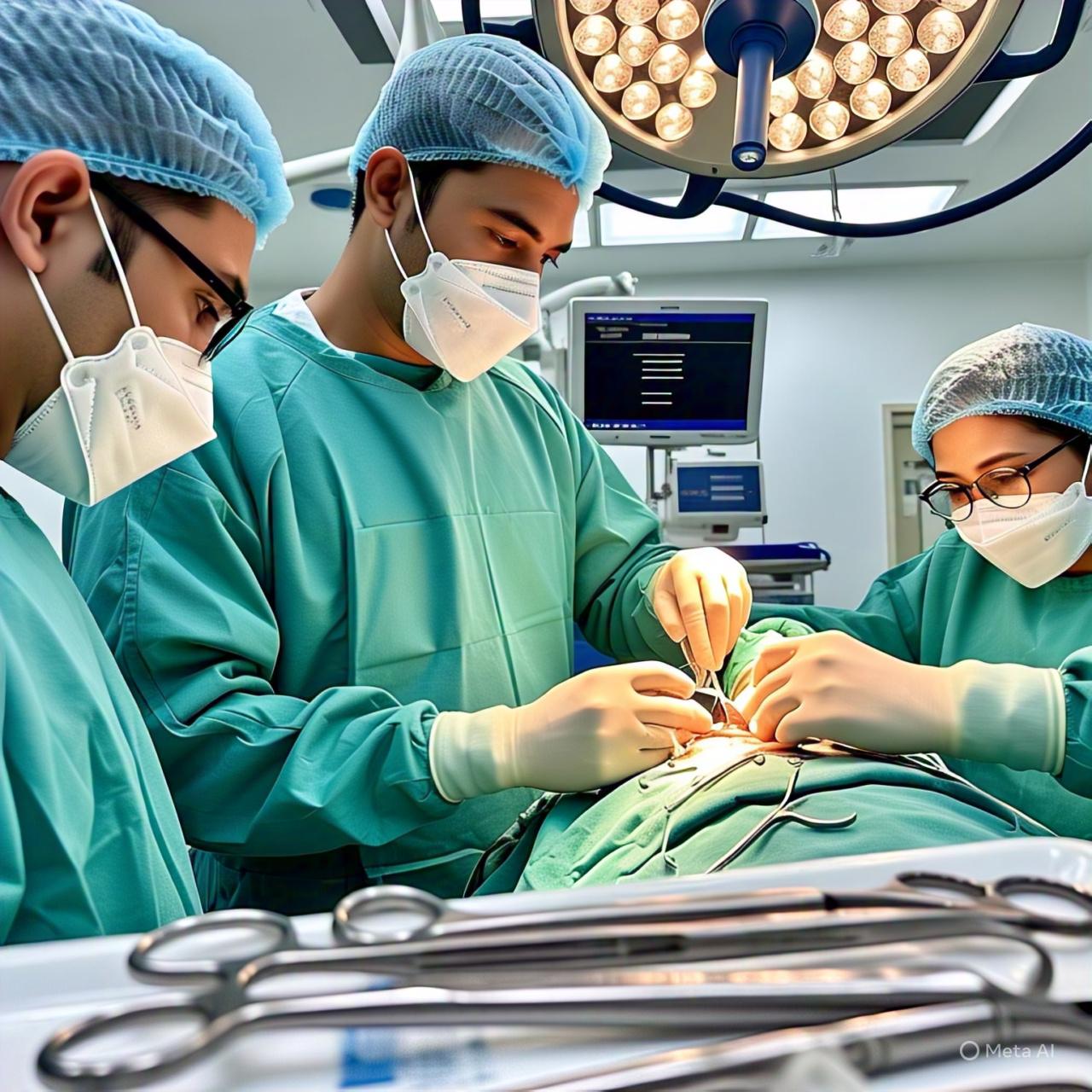Why High-Quality Surgical Instruments Are Essential for Effective Emergency Surgery

Why High-Quality Surgical Instruments Are Crucial in Emergency Situations
In emergency surgeries, there’s no margin for error. Time is critical, and the accuracy of each surgical action can make the difference between life and death. High-quality surgical instruments ensure optimal performance under intense pressure. These instruments offer the precision needed for procedures involving critical organs and complex repairs. Substandard tools may cause complications, prolong procedures, or even harm the patient. Premium instruments are designed with surgical ergonomics in mind, reducing fatigue and improving efficiency. Emergency room surgeons depend on tools that can withstand rapid sterilization and immediate reuse. In such high-stakes environments, the reliability and consistency of every instrument are non-negotiable. Ultimately, investing in quality tools isn't just about durability—it's about saving lives when every second counts.
Precision and Accuracy: The Core of Quality Instruments
Precision is vital in any surgical setting, but it’s even more crucial during emergency procedures. Surgeons must often work swiftly, which leaves no room for inaccuracies. High-quality instruments are manufactured with meticulous detail to ensure sharpness, alignment, and balance. For example, a premium scalpel provides cleaner incisions, reducing tissue damage and promoting faster healing. Clamps and forceps with refined gripping strength allow for better tissue control, minimizing the risk of slippage. Every millimeter matters during an emergency, and top-tier tools help ensure each movement counts. The accuracy offered by well-engineered surgical tools improves surgical outcomes and significantly reduces the likelihood of post-operative complications. Hospitals that prioritize precision see better recovery rates, especially in trauma care where quick, accurate intervention can prevent long-term damage or fatality.
Durability and Sterilization: Built to Withstand Repetition
Emergency surgeries often require instruments to be reused quickly. This makes durability and ease of sterilization essential features of any surgical toolkit. High-quality surgical instruments are crafted from superior-grade stainless steel or titanium, allowing them to withstand repeated sterilization without degrading. Poor-quality instruments may corrode or lose their functionality after a few uses, making them a liability during high-pressure situations. Durable instruments not only reduce replacement costs over time but also ensure that surgeons have access to reliable tools during every emergency case. Moreover, premium tools are designed to resist microbial buildup, helping prevent surgical site infections—a major risk during fast-paced trauma surgeries. Ensuring longevity and sterilization efficiency means hospitals can maintain operational readiness at all times.
Enhanced Control and Ergonomics for Surgeons
Fatigue is a major concern in emergency rooms, especially during long or back-to-back surgeries. High-quality surgical instruments are designed to minimize surgeon fatigue by offering superior ergonomics. Comfortable grips, balanced weight, and smooth maneuverability allow for better control, even during complex procedures. This improved control contributes to higher precision and less physical strain on the surgeon. Instruments with poor design can lead to hand cramps, errors, or longer operating times, all of which are dangerous in emergencies. With ergonomically advanced tools, surgeons can maintain focus and perform effectively under pressure. Many modern surgical kits are developed in collaboration with healthcare professionals to ensure practical, comfortable use. The integration of ergonomic design with precision functionality results in a more seamless surgical experience.
Impact on Patient Safety and Recovery
The use of high-grade instruments directly affects patient safety and recovery. Clean incisions, controlled bleeding, and minimal tissue trauma all contribute to faster healing and reduced hospital stays. Subpar instruments can lead to rough cuts, damaged tissues, or excessive bleeding—complications that can prolong recovery or cause infection. Using well-made surgical tools significantly reduces the chances of surgical errors, which can have life-altering consequences for patients. Furthermore, shorter recovery times free up hospital resources, enabling medical teams to treat more patients effectively. Safety is not just about the immediate outcome but also about ensuring the patient returns to health with minimal complications. Hospitals that invest in superior surgical instruments demonstrate a commitment to both the skill of their surgeons and the well-being of their patients.
Time Efficiency During Critical Procedures
In emergency surgeries, every minute counts. High-quality instruments help reduce operating time by functioning efficiently without the need for constant adjustments or replacements. Instruments that grip well, cut cleanly, and perform consistently enable surgeons to work quickly and confidently. For instance, a well-designed retractor will hold tissues in place securely, eliminating the need for repositioning. Faster surgeries also reduce the risk of complications such as hypothermia or excessive blood loss. Additionally, well-performing instruments minimize the number of tools required, simplifying the surgical setup and workflow. Speed combined with accuracy is the hallmark of quality surgical tools, especially when lives are at stake. In such scenarios, poorly functioning tools can not only delay procedures but can also compromise outcomes.
Reducing Risks of Surgical Errors
Surgical errors can have catastrophic consequences, particularly in emergencies. Faulty or low-grade instruments often contribute to such errors by malfunctioning during use. This can include breakage, poor grip, or imprecise movement. High-quality instruments are rigorously tested to ensure performance consistency in all scenarios. Their reliability gives surgeons the confidence to focus entirely on the task without second-guessing the tools at their disposal. Reducing equipment-related errors also lowers the chances of malpractice claims and improves hospital credibility. Hospitals that make quality surgical tools a priority are better prepared to offer high-standard emergency care. A well-prepared surgical team equipped with dependable instruments can minimize risks and ensure the best possible patient outcomes.
Better Outcomes in Ophthalmic and Microsurgeries
Microsurgeries, including ophthalmic operations, demand extraordinary precision—often at the microscopic level. Any slight error can result in permanent damage, especially to sensitive areas like the eyes. This makes specialized instruments indispensable for these procedures. A great example is the use of refined ophthalmic tools available through this specialized surgical manufacturer, which offers expertly designed instruments suited for delicate





